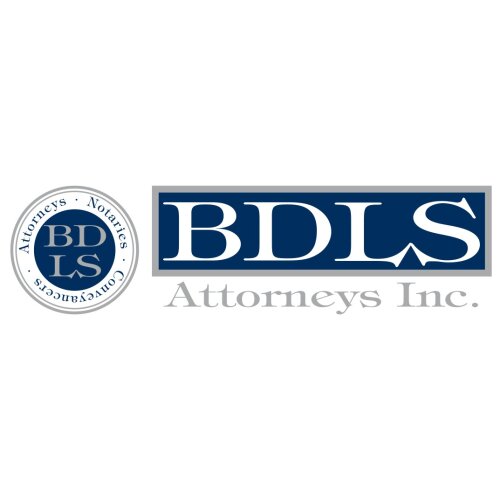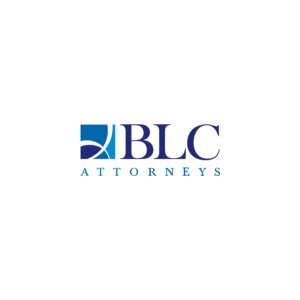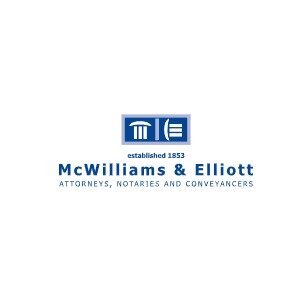Best Project Finance Lawyers in Port Elizabeth
Share your needs with us, get contacted by law firms.
Free. Takes 2 min.
List of the best lawyers in Port Elizabeth, South Africa
About Project Finance Law in Port Elizabeth, South Africa
Project finance is a highly specialized area of law and finance that enables the funding of large-scale infrastructure and industrial projects through a non-recourse or limited recourse financial structure. In Port Elizabeth, now officially known as Gqeberha, project finance is often associated with developments in the energy, transport, construction, and manufacturing sectors. The city’s rapid growth and strategic coastal location have made it a focal point for several private and public sector projects, demanding expertise in structuring, negotiating, and executing project finance deals.
In a project finance arrangement, the lenders usually look to the revenue generated from the project to repay the loan, rather than seeking recourse to the sponsors. This means that proper legal guidance is essential to allocate risk, ensure compliance with local and national regulations, and facilitate smooth funding and operation of the project.
Why You May Need a Lawyer
Engaging a lawyer who specializes in project finance can be indispensable for individuals, companies, and public entities looking to develop, invest in, or manage large projects. Common situations where legal assistance is important include:
- Drafting and reviewing project agreements, including loan agreements and joint venture contracts.
- Navigating complex regulatory requirements and obtaining necessary permits or approvals.
- Structuring the project to optimize legal and financial outcomes and limit liability.
- Undertaking due diligence on potential risks and legal issues.
- Resolving disputes between project partners, lenders, contractors, or government bodies.
- Ensuring compliance with environmental, labor, and safety laws.
- Advising on tax implications and incentives for project developments.
- Facilitating cross-border projects or finance involving international stakeholders.
A skilled project finance lawyer can help protect your interests and ensure your project’s success from inception to operation.
Local Laws Overview
Project finance in Port Elizabeth falls under the broader framework of South African law, but with unique considerations due to the city's local government structures, environmental conditions, and industrial development. Key aspects include:
- National Legislation: The National Credit Act, Companies Act, and Banks Act regulate lending and corporate entities involved in project finance.
- Municipal Bylaws and Approvals: Projects often require compliance with Nelson Mandela Bay Municipality bylaws, zoning laws, and building regulations.
- Environmental Laws: Strict compliance with the National Environmental Management Act is required, often necessitating Environmental Impact Assessments (EIA) for significant projects.
- Procurement Regulations: Public-private partnerships and municipal procurement processes follow the Municipal Finance Management Act and other related guidelines.
- Black Economic Empowerment: Projects must consider Broad-Based Black Economic Empowerment (BBBEE) compliance, which influences eligibility for government-backed initiatives and funding.
- Taxation: Navigating South African Revenue Service (SARS) tax requirements for project finance structures is crucial.
Local legal practice involves aligning project agreements and structures with these laws to avoid disputes and regulatory setbacks.
Frequently Asked Questions
What is project finance and how does it differ from traditional financing?
Project finance refers to raising funds for a specific project where the project's cash flow and assets are used as collateral rather than relying solely on the sponsors' balance sheets. This contrasts with traditional corporate finance, which considers the overall creditworthiness of the sponsoring company.
Which sectors in Port Elizabeth commonly use project finance structures?
Sectors such as renewable energy, port infrastructure, property development, manufacturing, water supply, and transportation often use project finance, given their size and complexity.
Do I need government approval for a project finance deal in Port Elizabeth?
Many projects require local government approval, especially if land use, rezoning, or environmental permits are necessary. Public infrastructure projects may also involve competitive procurement processes.
What risks should be evaluated in a project finance deal?
Key risks include regulatory changes, construction delays, cost overruns, unfavorable market conditions, environmental compliance issues, and counterparty default. Legal due diligence is essential to identify and mitigate these risks.
Can a foreign investor participate in project finance in Port Elizabeth?
Yes, foreign investors can participate, but they must comply with South African exchange control regulations and may face additional requirements under the Companies Act and BBBEE codes.
What is non-recourse or limited recourse financing?
Non-recourse financing means that lenders can only claim against the project’s assets and cash flows, not the sponsors’ other assets. Limited recourse may allow some claims against the sponsors under defined circumstances.
How are environmental concerns addressed in project finance?
Projects must comply with the National Environmental Management Act, and an Environmental Impact Assessment is usually required. Failure to secure environmental authorization can halt a project and lead to penalties.
How important is BBBEE compliance for project financing?
BBBEE compliance is very important, especially for projects seeking public sector contracts, funding or licenses. Non-compliance can disqualify applicants or limit access to certain opportunities.
What legal documents are typically required for a project finance deal?
Common documents include loan and facility agreements, security documents, direct agreements, shareholder or joint venture agreements, offtake agreements, construction contracts, and legal opinions.
Where can I find reliable legal support for project finance in Port Elizabeth?
Several law firms in Port Elizabeth have dedicated project finance teams. It is advisable to consult with a lawyer who has proven experience in large project transactions within the area.
Additional Resources
If you are seeking further information or assistance with project finance in Port Elizabeth, consider the following resources:
- Nelson Mandela Bay Municipality’s Planning and Human Settlements Department for permits and local bylaws.
- South African Department of Trade, Industry and Competition for investment and legal policy guidance.
- South African Reserve Bank for exchange control and foreign investment regulations.
- South African Revenue Service (SARS) for tax structuring and incentives information.
- National Treasury’s PPP Unit for advice on public private partnerships.
- The Law Society of South Africa or Eastern Cape Law Society to find qualified project finance lawyers.
Next Steps
If you are considering a project finance transaction in Port Elizabeth, it is essential to:
- Clearly define your project’s objectives, stakeholders, and financial requirements.
- Consult with a project finance lawyer at the earliest opportunity to understand your legal position and obligations.
- Conduct a thorough legal and regulatory due diligence review with your lawyer’s assistance.
- Identify and engage with potential funding sources, such as banks or development finance institutions.
- Ensure compliance with all local laws, regulations, and required permitting processes.
Starting the process with experienced legal guidance will help you avoid costly mistakes and position your project for long-term success in Port Elizabeth.
Lawzana helps you find the best lawyers and law firms in Port Elizabeth through a curated and pre-screened list of qualified legal professionals. Our platform offers rankings and detailed profiles of attorneys and law firms, allowing you to compare based on practice areas, including Project Finance, experience, and client feedback.
Each profile includes a description of the firm's areas of practice, client reviews, team members and partners, year of establishment, spoken languages, office locations, contact information, social media presence, and any published articles or resources. Most firms on our platform speak English and are experienced in both local and international legal matters.
Get a quote from top-rated law firms in Port Elizabeth, South Africa — quickly, securely, and without unnecessary hassle.
Disclaimer:
The information provided on this page is for general informational purposes only and does not constitute legal advice. While we strive to ensure the accuracy and relevance of the content, legal information may change over time, and interpretations of the law can vary. You should always consult with a qualified legal professional for advice specific to your situation.
We disclaim all liability for actions taken or not taken based on the content of this page. If you believe any information is incorrect or outdated, please contact us, and we will review and update it where appropriate.










